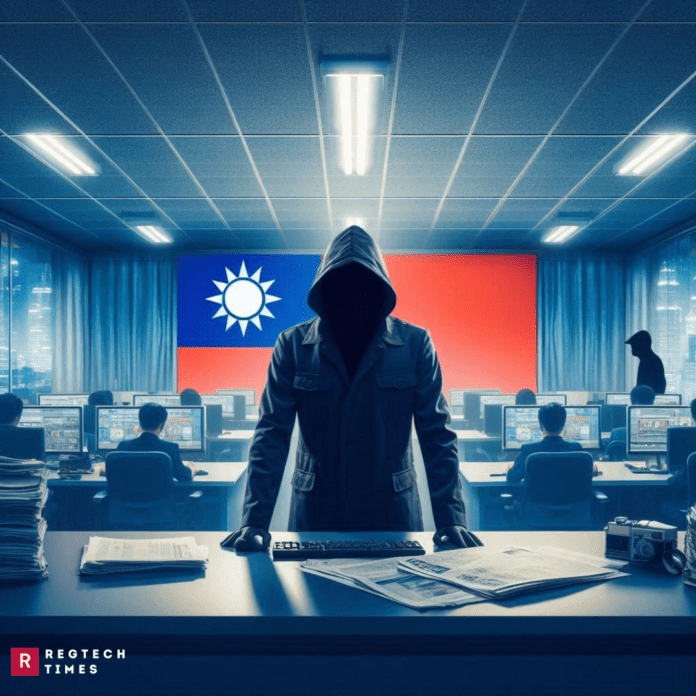The National Communications Commission (NCC) of Taiwan has launched an in-depth investigation into potential Chinese interference in the editorial direction of political programs on a local television station.
The investigation focuses on accusations that China sought to impose a pro-Beijing editorial stance. An anonymous source has revealed that the Taiwan Affairs Office of the State Council (the executive branch of the Chinese government) approached several Taiwanese TV channels earlier this year, offering “commercial interests” in China in exchange for cooperation in producing interview programs.
Unveiling the Influence Operation
According to the source, the agreement included the involvement of a Xinhua News Agency correspondent based in Taiwan. This correspondent’s role encompassed proposing topics, scriptwriting, and overseeing recordings. Only one TV channel accepted these terms, leading to the broadcast of a series of programs that praised former Taiwanese President Ma Ying-jeou’s (2008-2016) policies toward Beijing during his recent visit to China.
The production team was reportedly unaware of the Xinhua journalist’s true identity until editorial interference began to raise suspicion in the newsroom, as reported by the Taipei Times. The revelation has sparked significant concern about the extent and nature of foreign influence on Taiwanese media content.
Taiwan-US Defense Talks Amidst Geopolitical Tensions and China Military Maneuvers
Official Response and Investigation by NCC
Wong Po-tsung, NCC Vice President and spokesperson, confirmed to the Taipei Times that the commission is actively investigating “the details of the situation.” He noted that the Xinhua correspondent, who returned to China shortly after his involvement was exposed, may have engaged in activities “incongruent” with the stated purpose of his stay in Taiwan.
The Ministry of Culture and the NCC are currently assessing whether the journalist and the TV channel violated any regulations, including laws governing relations between Taiwan and China. Wong emphasized that the NCC has formally informed the Satellite Television Broadcasting Association and other media organizations to address the situation and uphold ethical standards. This proactive stance underscores Taiwan’s commitment to maintaining the integrity of its media landscape.
Taiwanese Mastermind Behind Incognito Market, a $100 Million Dark Web Platform, Arrested in New York
China’s Denial and Continuing Tensions
China has denied the accusations, with Zhu Fenglian, a spokesperson for the Taiwan Affairs Office, dismissing the claims as “pure fabrication.” Zhu accused Taiwanese authorities of “misleading the Taiwanese public with malicious intentions.” She further asserted that the ruling Democratic Progressive Party (DPP) in Taiwan is responsible for dividing Taiwanese society and fostering hostility towards China, while intimidating and punishing media outlets with differing viewpoints.
This situation highlights the ongoing struggle between Taiwan’s efforts to resist Beijing’s influence and China’s relentless pressure campaign. The latter includes disinformation operations that peaked during Taiwan’s recent presidential elections. Despite these challenges, Taiwan remains steadfast in its vigilance against external interference to safeguard its democratic processes and media integrity.
China Imposes Sanctions on Two US Companies Over Taiwan Arms Sales
Broader Implications for Media and Democracy
The allegations and subsequent investigation highlight broader concerns about media independence and the integrity of democratic processes in Taiwan. The involvement of foreign actors in shaping media narratives poses significant risks to public trust and the unbiased dissemination of information. Taiwan’s commitment to addressing these issues is crucial in maintaining a robust and resilient democratic society.
Foreign interference in domestic media not only undermines journalistic integrity but also threatens the very fabric of democracy. Free and independent media are vital for informed public discourse, and any external manipulation can skew public perception and erode trust in democratic institutions. The NCC’s investigation is a step towards uncovering the truth and ensuring that such breaches are promptly addressed.
Historical Context and Future Measures
This incident is not isolated. It is part of a broader pattern of attempted influence by China over Taiwan’s media and political landscape. Historically, Beijing has employed a range of tactics, from economic incentives to outright disinformation campaigns, to sway public opinion and policy in Taiwan. The ongoing geopolitical tensions between the two entities only amplify these efforts.
Taiwan: Facing Geopolitical Tensions Amidst Natural Disasters
As the investigation unfolds, it will be essential for the NCC and other relevant authorities to thoroughly examine the extent of the alleged interference and implement measures to prevent future occurrences. This may include stricter regulations on foreign media correspondents, enhanced scrutiny of media ownership, and increased support for independent journalism.
Taiwan needs media vigilance and stringent regulations to protect against undue influence from external entities. It also calls for greater public awareness and critical consumption of media to mitigate the impact of such interference.
In conclusion, the NCC’s investigation into alleged Chinese interference in Taiwanese media underscores the importance of safeguarding media integrity and democratic processes. By addressing these challenges head-on, Taiwan can reinforce its commitment to democracy and the principles of free and independent journalism.


